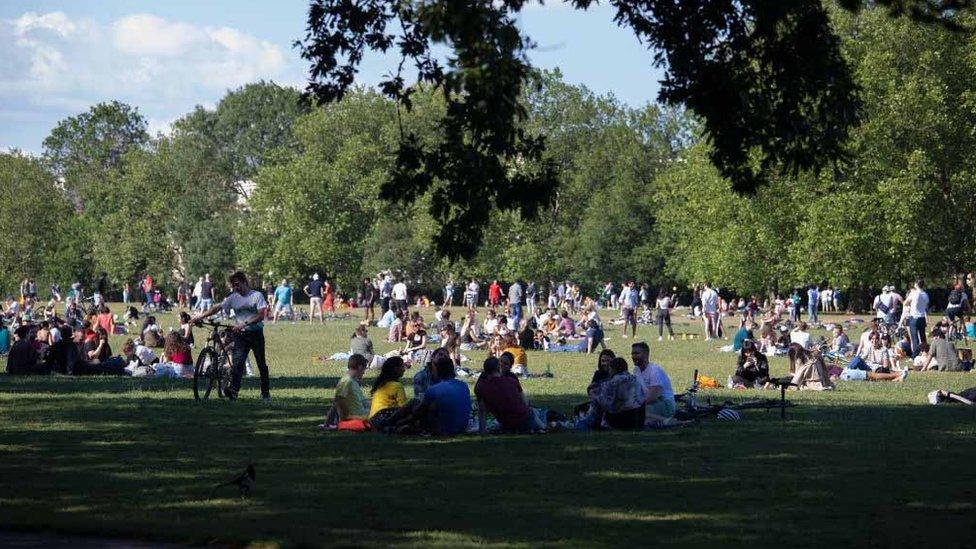Coronavirus: Was £10,000 student party fine too harsh?
- Published
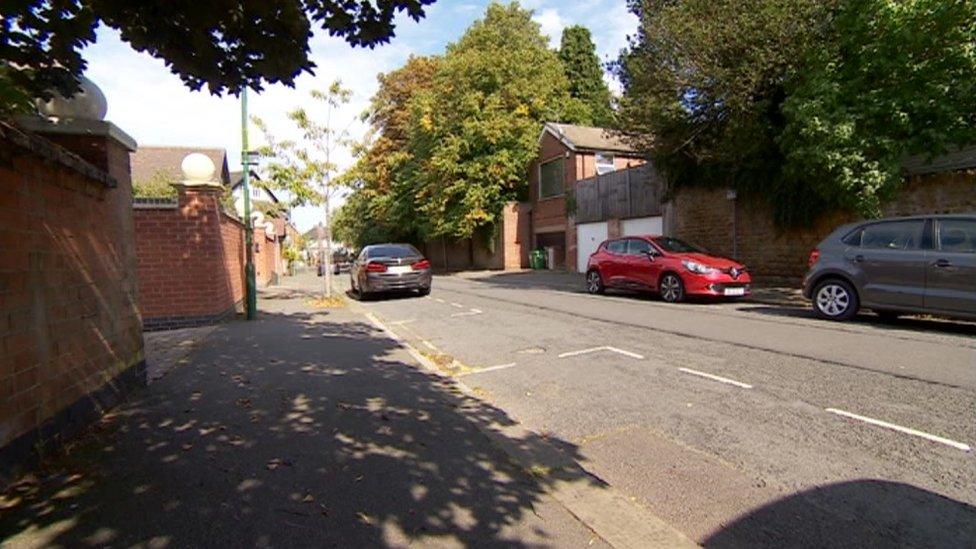
About 50 people were found at the party in Lenton
A 19-year-old student was fined £10,000 for throwing a large house party in breach of Covid-19 regulations. Was it a just punishment?
Of the many lessons taught to one student during his time at university in Nottingham, this one might be the most memorable.
The 19-year-old was handed a £10,000 fine by police for refusing to shut down a birthday party attended by more than 50 people when he was asked.
Police have said they were following clearly set out government legislation to keep the public safe but some have questioned the size of the fine.
What happened?
An explanation for the law-breaking get-together, in Harlaxton Drive, Lenton, was provided by the organiser himself in a letter of apology sent to neighbours in the wake of the party.
Describing it as a "foolish gathering", he said they had planned to celebrate the recent birthday of two housemates with a party of about 25 people "within the guidelines of the... Covid-19 regulations".
But he admitted it "quickly became out of hand", with more friends arriving than had been expected.
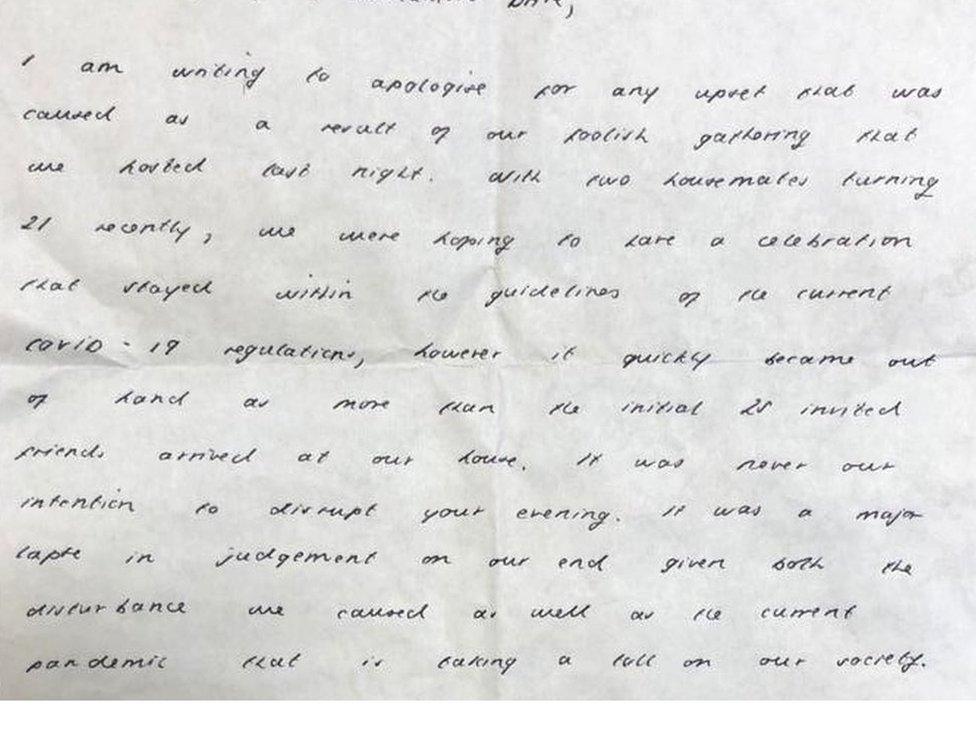
In the letter sent to his neighbours, the party host said the "foolish gathering" was a "major lapse of judgement"
Nottinghamshire Police said Community Protection Officers visited the house and asked for the party to be brought to a halt.
The force said it was this refusal to do so that prompted the large penalty.
Why such a big fine?
This is the amount set out in the most recent set of Covid-19 laws on gatherings that came into force on 29 August and are set out here, external.
The guidance says the £10,000 fine applies to anyone organising an illegal rave, unlicensed music event or any other type of gathering of more than 30 people.
This placed the party organiser in the same bracket as those who have held huge illegal dance events in fields over recent weeks.
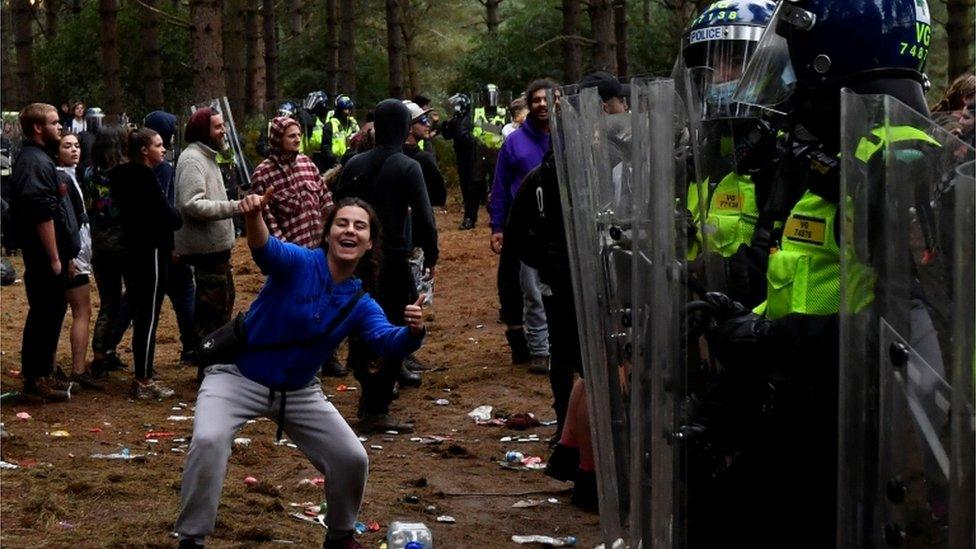
Several illegal raves have been shut down by police over recent weeks
Alongside organisers, anyone attending events with more than six people can also be fined.
These start at £100 but are doubled with each offence up to a maximum of £3,200.
Has anyone else been fined this amount?
Yes - in a very similar case the organiser of a party attended by 100 people in Wiltshire last week was given the maximum fine after failing to close it down when warned.
And £10,000 fines have been issued to illegal rave organisers in Leeds and South Wales.
What have neighbours said about the fine?
The large penalty has divided opinion among the non-student residents on Harlaxton Drive.
Russ Frasier said he felt it was "absolutely ridiculous".
"Yeah fine the guys, but we were all students once and we've all been irresponsible at one stage or another," he said.
"I just think it's way above the pale. They're good guys. We've never had a problem."
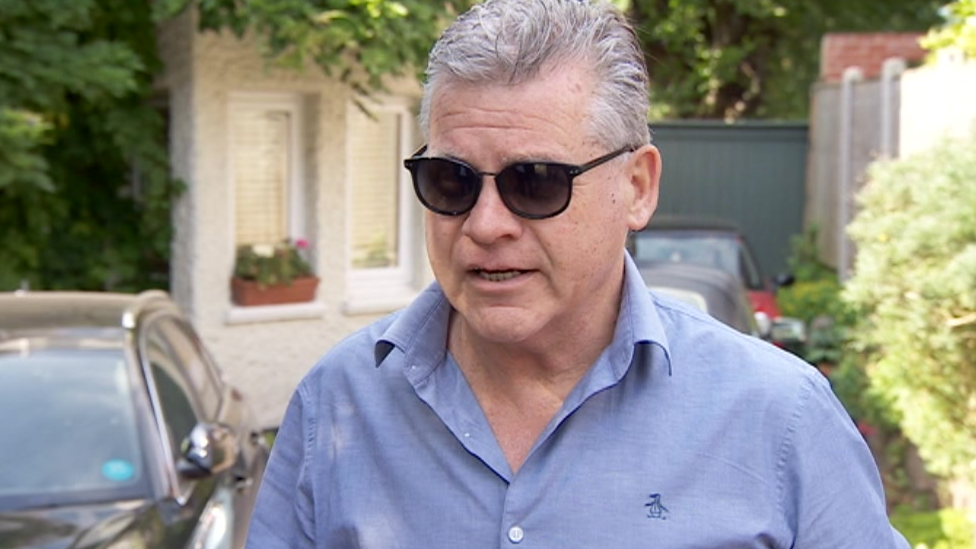
Russ Frasier said the size of the fine was "ridiculous"
But another neighbour, Kate Loewenthal, had less sympathy.
"I wouldn't wish [the fine] on anybody but that's the law and we're in the middle of pandemic," she said.
"Warnings have been issued by the police, the media, the universities. Nobody can say they haven't been warned."

THE R NUMBER: What it means and why it matters
SUPPORT BUBBLES: What are they and who can be in yours?
TEST AND TRACE: How does it work?
TESTING: What tests are available?

Ms Loewenthal said she had seen several large parties take place in the local area.
"As soon as the lockdown eased slightly and universities told students they could come back to collect their belongings, we had a spate of about 10 to 12 parties a night," she said.
"I've witnessed parties with 60, 70 students there.
"This household was the one that got caught but they're by no means the only ones."
What has his university said?
The bad news for the party organiser is further punishment could be coming his way.
The University of Nottingham said in a statement: "We are deeply disappointed at this behaviour.
"The rules apply to everyone and students should not host or attend house parties, and should observe social distancing at all times.
"Breaches of social distancing measures are an offence under our student discipline code, and the university will consider further disciplinary action in addition to any court proceedings."

The University of Nottingham said further punishment was being considered
What's the view from the legal profession?
Jude Lanchin, a criminal defence lawyer who specialises in working with young people, criticised the fine as a "completely disproportionate" response to a "relatively limited breach of the law".
She said: "The legislation - as with other parts of Covid-19 law and regulations - was rushed through at the end of August.
"It was clearly designed to deal with large 'raves', such as those taking place in forests and fields, some with planning and organisation in place, ticket fees, DJs and large sound systems.
"To use this to penalise the organiser of a house party is simply a misuse of the law."
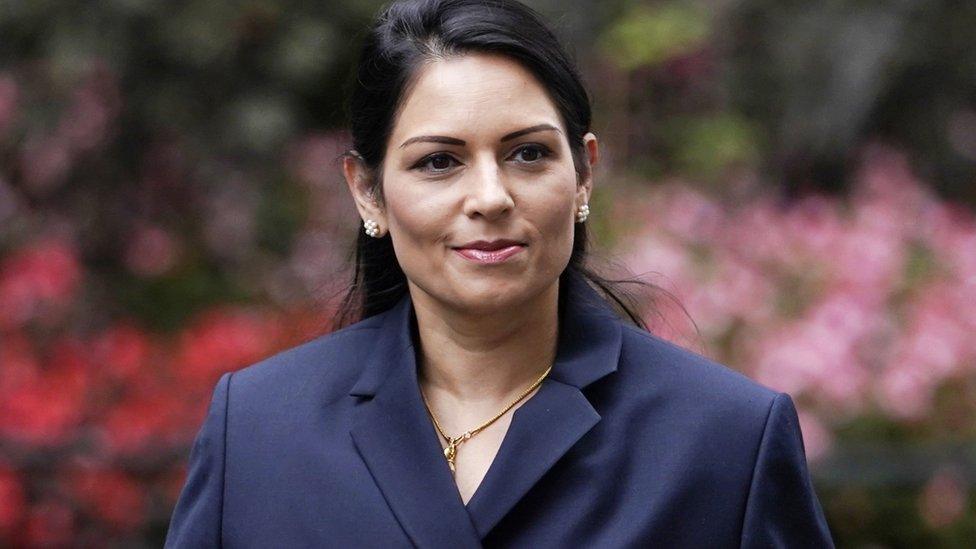
The new legislation was unveiled by Home Secretary Priti Patel last month
Ben Brown, from Nottingham-based Bhatia Best Solicitors, said it was possible the fine would be significantly reduced by magistrates.
"Courts usually determine the level of a fine based on a defendant's income," he said.
"Therefore, it may be the case that a court fine would be significantly lower than the £10,000 fixed penalty notice.
"The young man should take legal advice as to the merits of contesting this penalty notice as at first blush, it seems an extremely tough penalty."
Have police explained their decision?
Assistant Chief Constable Kate Meynell said enforcement remained a last resort.
She said: "Our position has always been whenever we get calls to try to engage with people, try to explain what the legislation is, what they're breaking and encourage them not to do it.
"That's exactly what happened in this case and he failed to heed the warnings."
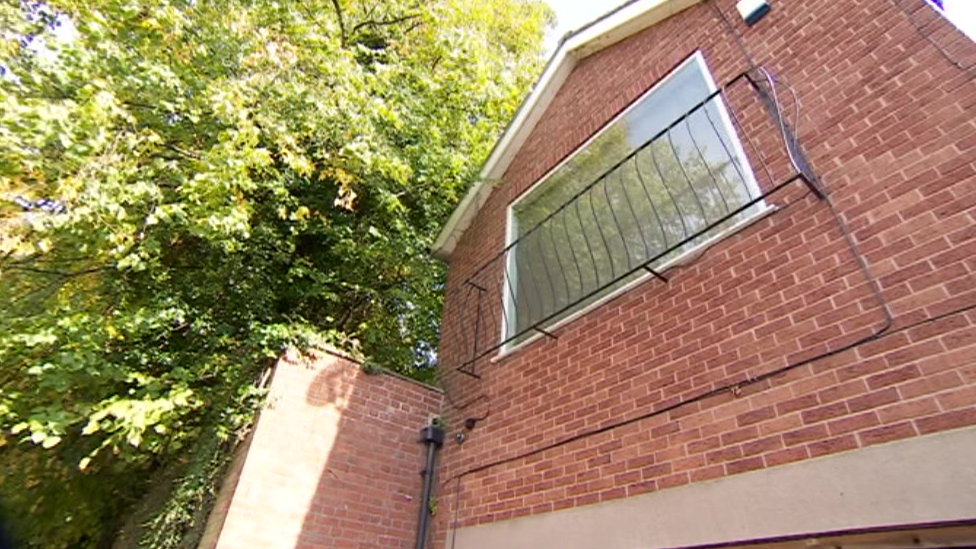
The party's organiser said he only expected 25 people to attend
But was £10,000 a disproportionate fine?
"It's difficult for me to comment on the amount. That's obviously in legislation and is not something directly influenced by the police," said ACC Meynell.
"However, what we can influence is to make sure everybody takes personal responsibility to stop the spread of Covid-19 and the legislation is in place to do that."

Follow BBC East Midlands on Facebook, external, Twitter, external, or Instagram, external. Send your story ideas to eastmidsnews@bbc.co.uk.
- Published13 September 2020
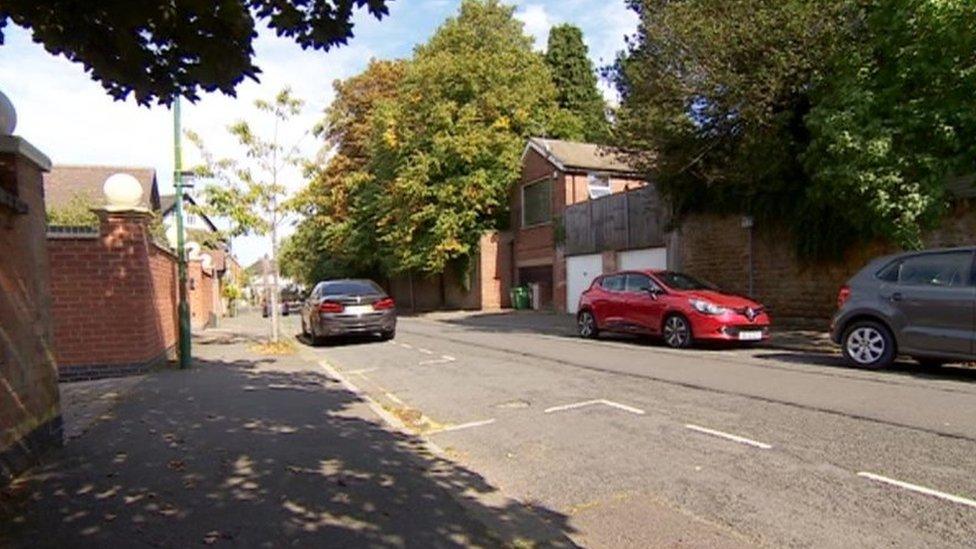
- Published12 September 2020
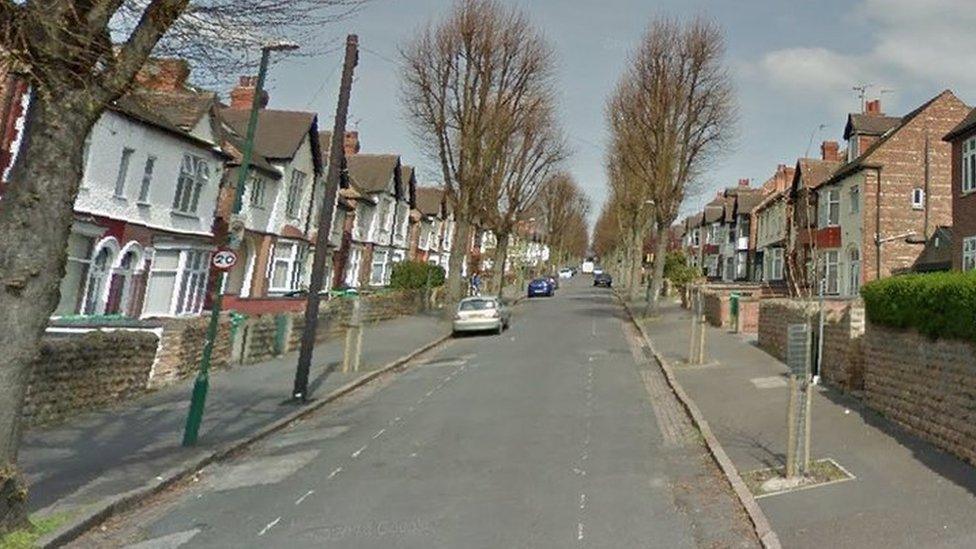
- Published12 September 2020
